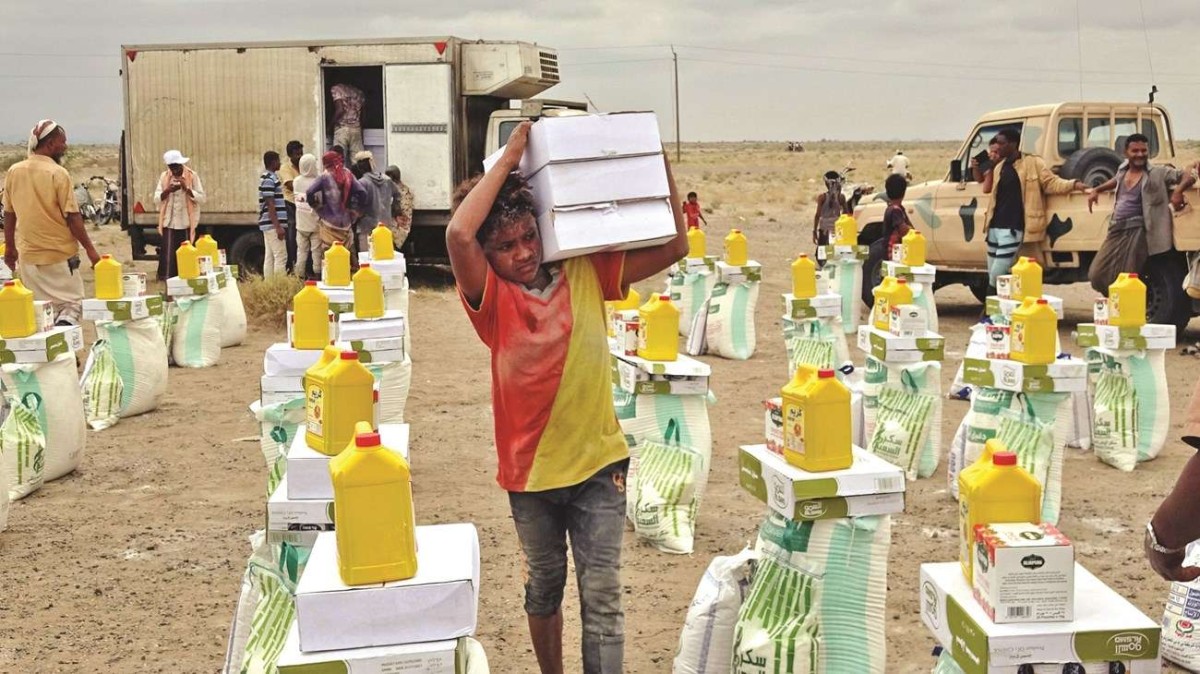Aid shortage threatens 4.4 million Yemenis with famine


Millions of Yemenis are facing an unprecedented humanitarian crisis, due to the lack of funding received by the World Food Program to support Yemenis in facing malnutrition, enhancing resilience and securing livelihoods.
A World Food Program report stated that 4.4 million Yemenis will be affected. As of the last quarter of this year due to the lack of aid.
Yemeni experts and political analysts pointed out that the continuation of the coup would worsen the humanitarian situation, calling on the World Food Program to obtain more funding to limit the aggravation of the crisis.
The Yemeni political researcher, Muhammad Al-Jami, considered that the United Nations always raises the level of the crisis in Yemen to the maximum extent in order to obtain concessions from countries of the world, and to support its institutions operating in Yemen, which reach 40 organizations.
Al-Jamai stressed, in statements to Al-Ittihad, the necessity of supporting local and governmental organizations in Yemen, to achieve positive results, at a time when the countries of the Coalition to Support Legitimacy are working to directly support Yemen, which reflects positively on the humanitarian situation.
But Yemeni political analyst Mahmoud Al-Taher blamed the food crisis on the Houthi group, pointing out that there is a lot of aid arriving in Yemen, but the group is plundering it, exploiting it in the war, and not delivering it to those who deserve it.
Al-Taher said, in statements to Al-Ittihad, that “Yemenis are affected by the current situation, as there is neither war nor peace, which has created a lot of corruption, and made the Houthi group continue to punish the Yemeni people.”
In this context, Yemeni political analyst Musa Al-Maqtari said that since the Houthi coup and the plundering of the country’s capabilities, and its impact on the economic conditions of the expansion of poverty and the number of hungry people, the interventions of the World Food Program have constituted one of the most important solutions to combat the crisis and fight malnutrition, and a large number of people have benefited from it. Population is one of these interventions that formed a window of hope to avoid death from starvation, especially for the most vulnerable and affected groups, children and women in particular.
Al-Maqtari, in statements to Al-Ittihad, warned against suspending the humanitarian interventions of the World Food Programme, which will negatively affect the children, their health, and their physical and mental development, pointing out that “poor families are the victims who constitute the majority of Yemen’s population, so Yemen faces A major challenge, and the international organization and regional and international funders must search for urgent solutions to avoid implementing the suspension decision.”